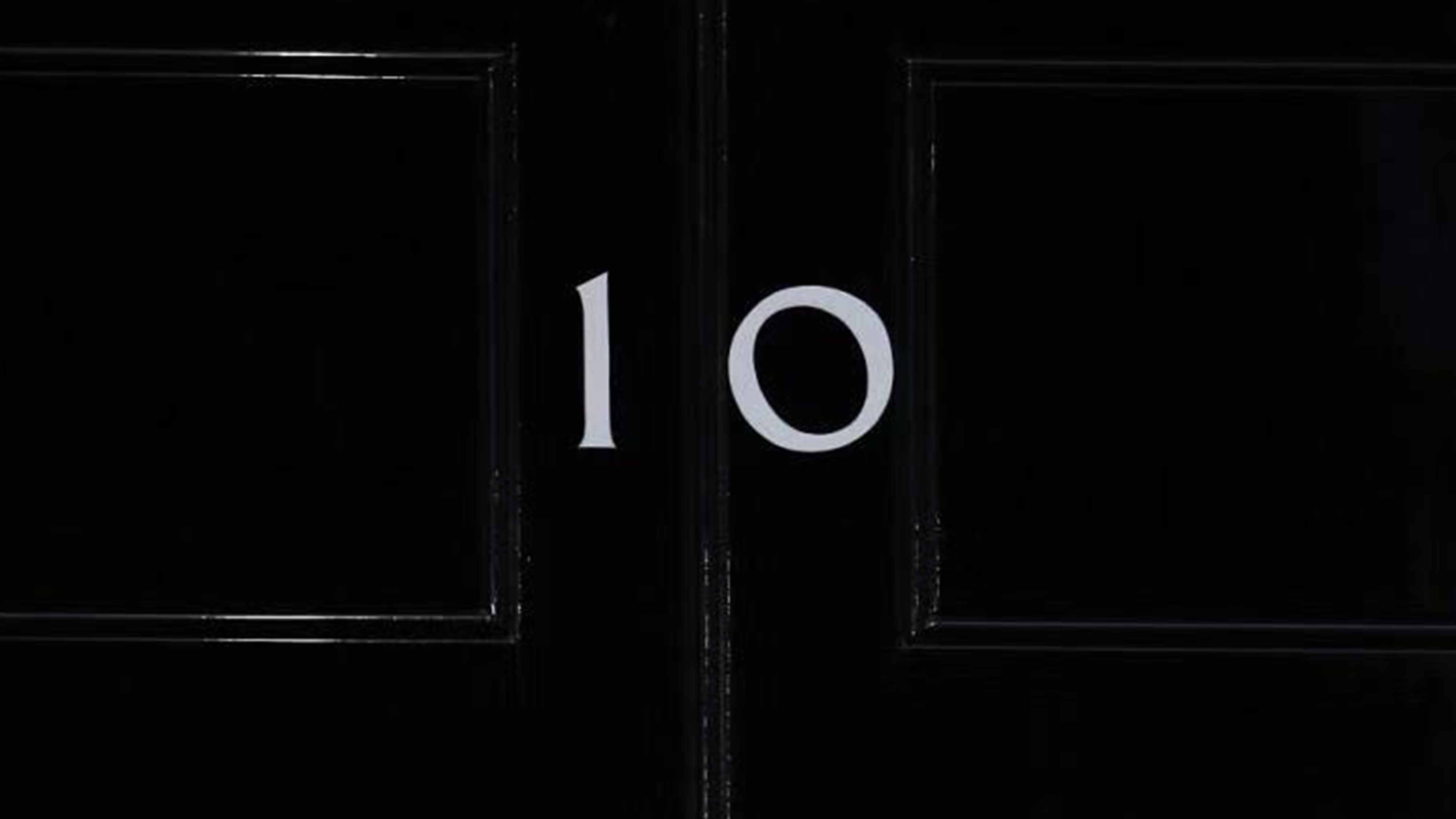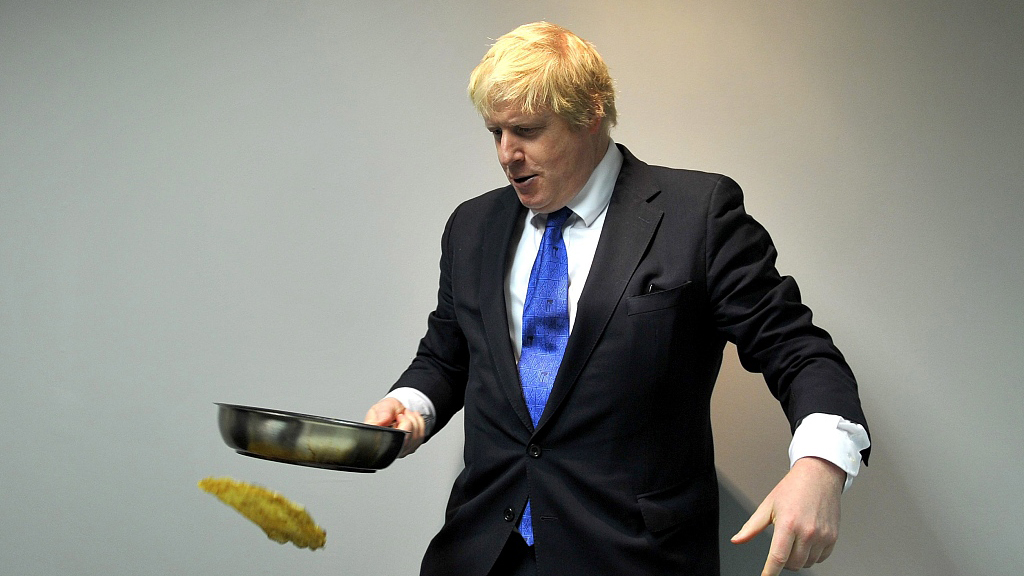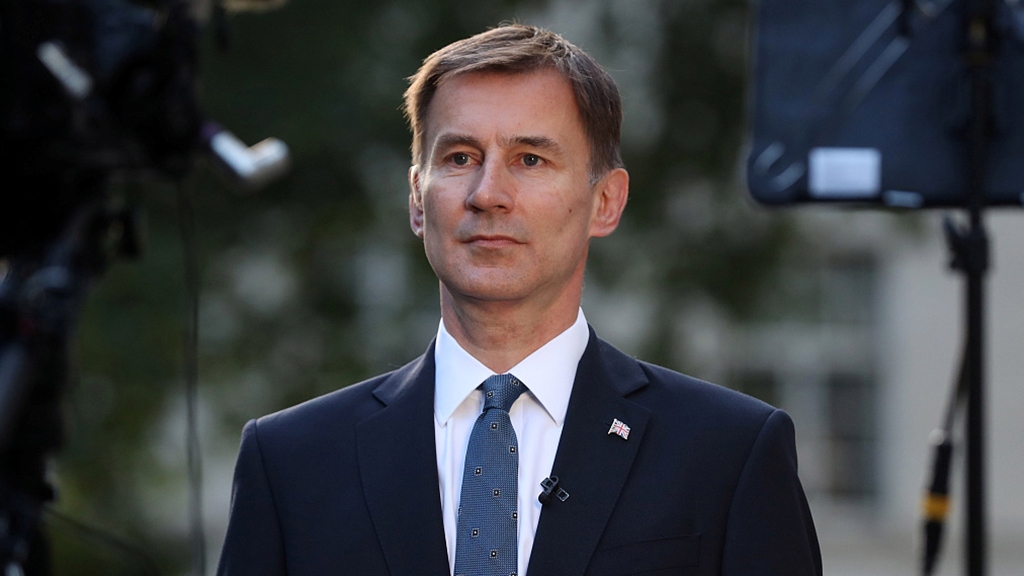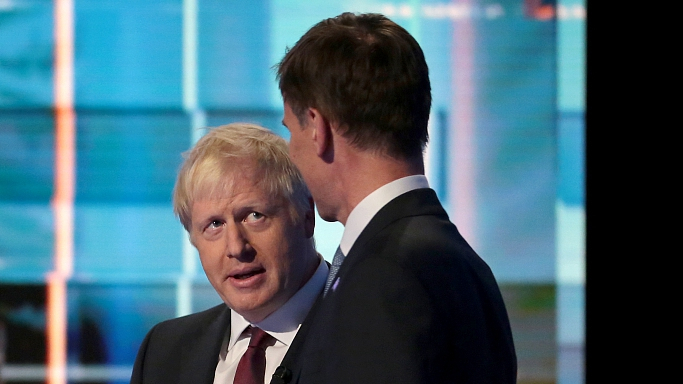

Britain's next prime minister is expected to take office on Wednesday with just 100 days until the next Brexit deadline. In the three months and one week until October 31 they will face an array of challenges, starting before they even walk through the famous black door of 10 Downing Street for the first time as head of government.
The winner of the Conservative Party leadership contest – Boris Johnson or Jeremy Hunt – will be announced at 11:45 local time on Tuesday, outgoing prime minister Theresa May will drive to Buckingham Palace to resign on Wednesday afternoon, and her likely successor will make the same journey to ask Queen Elizabeth II for permission to form a government shortly afterwards.
Read more:
If Johnson, the heavy favorite, or Hunt is able to command a majority in parliament, they will then make a speech outside Downing Street setting out an agenda for Britain. For both, that will likely mean warm words about bringing the country together and firm but undetailed promises to "get Brexit done."
The new prime minister will then head into his new base – a home, an office and the government's headquarters, all within three 335-year-old terraced houses on Downing Street in central London. He will be joined by a team of political advisers – expected to be heavily recruited from the 2016 Leave campaign, if Johnson wins.

The newcomer will be immediately briefed on pressing security matters, with UK-Iran tensions over the seizure of oil tankers likely to be high on the list, and told to write four "letters of last resort."
The handwritten letters – one for each of Britain's nuclear submarines – give instructions on how to respond in the event the country is wiped out in a nuclear attack. Each is locked aboard a submarine, unopened, and destroyed when a new prime minister takes office.
This is typically a sobering moment for a new leader. Tony Blair, prime minister from 1997-2007, reportedly turned white when asked to write the letters.
In the following hours the major jobs in the new government will be announced. Leading Brexit voices are expected to make a return if Johnson wins, along with moderates who backed his leadership bid, and a sprinkling of younger MPs are likely to be promoted.

The new prime minister will also field congratulatory calls from around the world, his first opportunity to give EU leaders a firm indication of how he wants to tackle Brexit – neither contender is believed to have been in contact with Brussels' negotiators during the leadership campaign.
Face-to-face talks with Irish Taoiseach Leo Varadkar, German Chancellor Angela Merkel and French President Emmanuel Macron are expected shortly after taking office, and persuading national leaders to consider renegotiation is the only route to changes in the existing withdrawal agreement.
Both Johnson and Hunt have promised to remove the Irish backstop, part of the withdrawal agreement, but it can only be reopened at the direction of the European Council, which is made up of the 28 heads of government. EU leaders have consistently said that only the political declaration, and not the withdrawal agreement, can be renegotiated, however.
Read more:
Can von der Leyen break Brexit deadlock?
Insiders report that Johnson hasn't decided which approach he would take on Brexit – some supporters believe the May deal can be repackaged and sold with minor tweaks to backstop, others insist it should be abandoned in favor of a pause during which a free trade agreement is negotiated, and yet more argue for a no-deal alongside a series of mini-trade deals with the EU.
None of those options will be an easy sell to Brussels, and the complications over the default option – a no-deal exit – will be even greater than under May. A majority in the UK parliament, likely boosted by a series of skeptical former ministers set to resign before the new leader takes office, is likely to block leaving the EU without a deal.

Conservative Party leadership contenders Boris Johnson and Jeremy Hunt take part in a head-to-had TV debate in Salford, UK, July 9, 2019. /VCG Photo
A new prime minister historically enjoys a short bounce in public support, but whoever takes over will nevertheless be in an extremely weak position in parliament.
His government's parliamentary majority will be a maximum of four – even with the support of the Democratic Unionists (DUP), the small Northern Irish party Theresa May struck a pact with after the disastrous 2017 election, and that backing can't be taken for granted.
DUP leader Arlene Foster told Sky News in late June: "We'll be talking to whoever the new prime minister is about the confidence and supply agreement. We look forward to having those conversations with whoever the PM is and then striking a deal to move things forward."
There is also a by-election on August 1 which could result in the governing majority dropping to three, and speculation of defections by pro-remain Conservatives to the Liberal Democrats in the event of a Johnson victory. It's possible that a Johnson win would leave the Conservative-DUP alliance unable to command a parliamentary majority.
Read more:
Hammond to quit if Johnson becomes PM
MPs vote to block parliament suspension
Even if there are no defections, such a small majority is not a sustainable way to run a government and will almost certainly lead to a general election in the near future.
A pre-Brexit election could happen if there's an attempt to push through a no-deal Brexit and a vote of no-confidence in the government is passed, or if the prime minister decides it's the only way to break the deadlock.
An election with Brexit up in the air would leave four parties in contention to win the most votes, whereas a poll after exit from the EU would put the Conservatives in a strong position to win a majority. Navigating an exit from the EU is vital to the survival of the new leader and his party.
When May took office in 2016, she knew she was walking into a tough job. Her successor – whether it's Johnson or Hunt – will be running straight into the middle of a crisis, and have 100 days to find a way out.

Copyright © 2018 CGTN. Beijing ICP prepared NO.16065310-3
Copyright © 2018 CGTN. Beijing ICP prepared NO.16065310-3